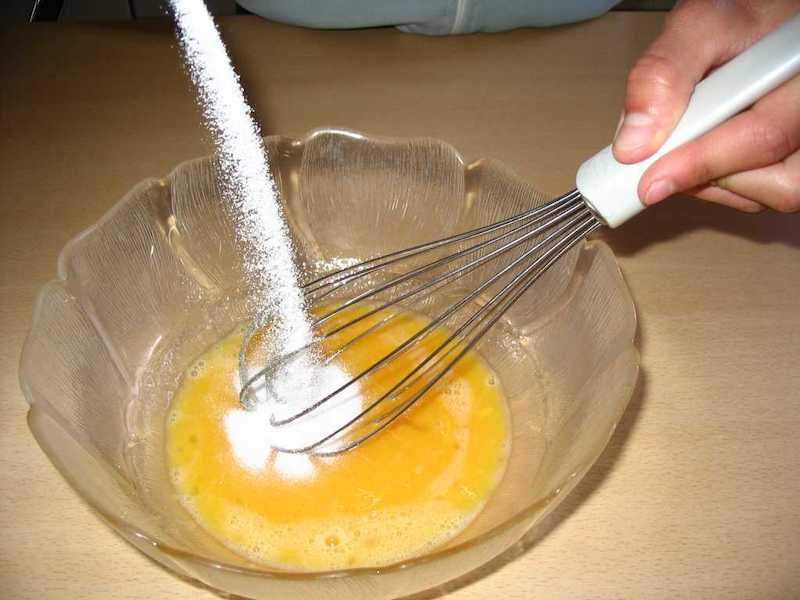Is Egg an Emulsifier?
Making a stable emulsion is one of the best cooking skills to master. Thick sauces, smooth dressings, and decadent creams all rely on the ability to make your own emulsions.
The ordinary kitchen is full of emulsions and emulsifiers, but learning how to make your own can be challenging.
So of the options out there, is egg an emulsifier?
Yes, eggs are excellent emulsifiers. Both egg whites and egg yolks contain different emulsifiers, so you can use either one or whole eggs to create different emulsions.
In fact, eggs are themselves a great example of an emulsion, and you can always use an existing emulsion as an emulsifier to make more.
So, let’s learn more about eggs and emulsions.
Can Eggs be Used as Emulsifiers?
Yes, eggs can be used as emulsifiers.
In fact, eggs are one of the best and most popular emulsifiers in the world, necessary for everything from mayonnaise to hollandaise to ice cream.
As a result, eggs are used as emulsifiers in a vast range of dishes worldwide.
Why Emulsifier is Present in Egg
An emulsion is a stable combination of liquid and fat, which don’t usually mix, as we know from ordinary oil and vinegar salad dressings.
To make liquids and fats bind together, you need protein.
Part of the amino acids in protein binds to liquids, while another part binds to fats, turning the entire mixture into a smooth, stable solution.
An egg is particularly high in fats, liquids, and proteins, bound together to form an emulsion, making it an excellent emulsifier.
When making an emulsion, it is essential to continuously beat or whisk and add fats or liquid ingredients to the emulsifier.
When emulsifying with eggs, beating quickly and adding ingredients in a small stream or droplets breaks up the ingredients into very small particles.
This allows time for the emulsifiers within the egg to thoroughly coat the tiny droplets, preventing them from joining together again and keeping them suspended in the emulsion.
Is Egg White an Emulsifier?
Both parts of an egg work as emulsifiers, but in different ways.
Egg white is an emulsifier due to its albumin protein content.
Because whipping egg whites also creates a high volume of air bubbles, egg whites are often used to make emulsions like culinary foams, mousses, soufflés, marshmallows, and meringues.
Is Egg Yolk an Emulsifier?
Egg yolk is an emulsifier. It contains lecithin, a famous and widely used emulsifier.
Unlike egg whites, egg yolks are more viscous and stable, making thick emulsions like mayonnaise, hollandaise, other sauces, and cheesecakes.
In ice cream, egg yolks also provide improved stability during freezing and thawing, so the ice cream does not “break” as the temperature changes.
Why is an Egg a Good Emulsifier?
An egg is a good emulsifier because it is itself an emulsion.
An egg is a stable combination of liquid, fat, and protein with a cohesive, thickened, creamy texture.
You can use any emulsion to create more of an emulsion (for example, an egg to make mayonnaise) because the amino acids in the proteins will bind to many additional molecules.
Within an existing emulsion like egg or butter, many amino acids are still “free” to bind to new fat and liquid particles and expand, further emulsifying new ingredients.
An egg is an excellent emulsifier because both the whites and yolks can form emulsions, and they form them in different ways.
For example, you can use the egg white to make a light, airy emulsion that provides structure and lift, or use the yolk to make a thick, unctuous emulsion with incredible stability.
Or you can use both parts, as a whole egg, to create an emulsion that is the best of both worlds.
Although eggs are excellent emulsifiers and make strong, stable, creamy, delicious emulsions, they aren’t the best choice for all foods.
Some foods which will be eaten raw, like salad dressings, should only be emulsified with egg yolks (egg whites should be cooked before eating).
For raw foods, you can also consider other common kitchen emulsifiers like:
- Mustard
- Mayonnaise
- Honey
- Tahini or nut butters
- Avocado
- Tomato paste
- Softened butter
- Aquafaba
In Summary
Eggs have been used to make emulsions for centuries because they are such excellent emulsifiers and are so widely available.
Both egg yolks and egg whites can be used to produce stable emulsions and combine oils and liquids into some of the most famous recipes in the world.







